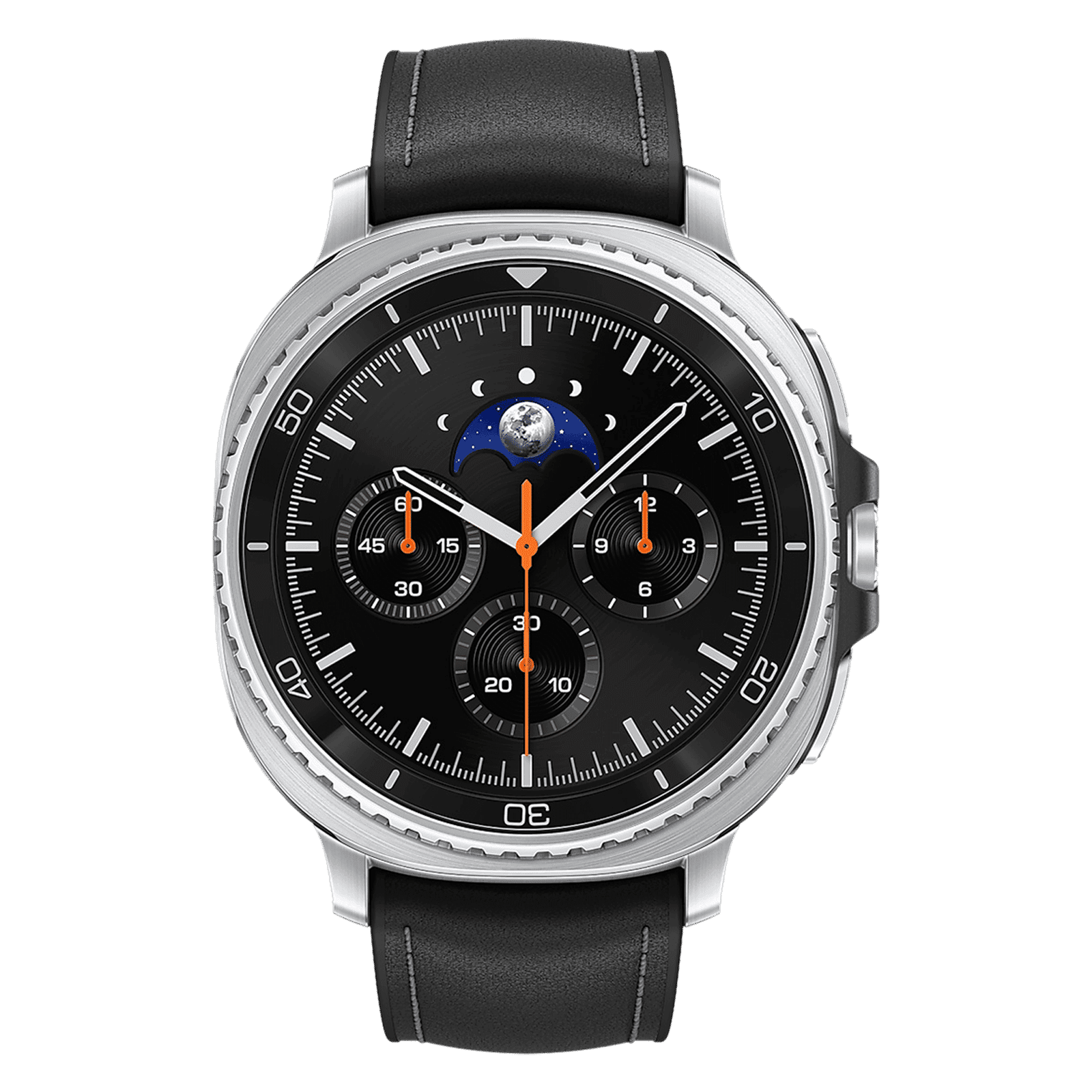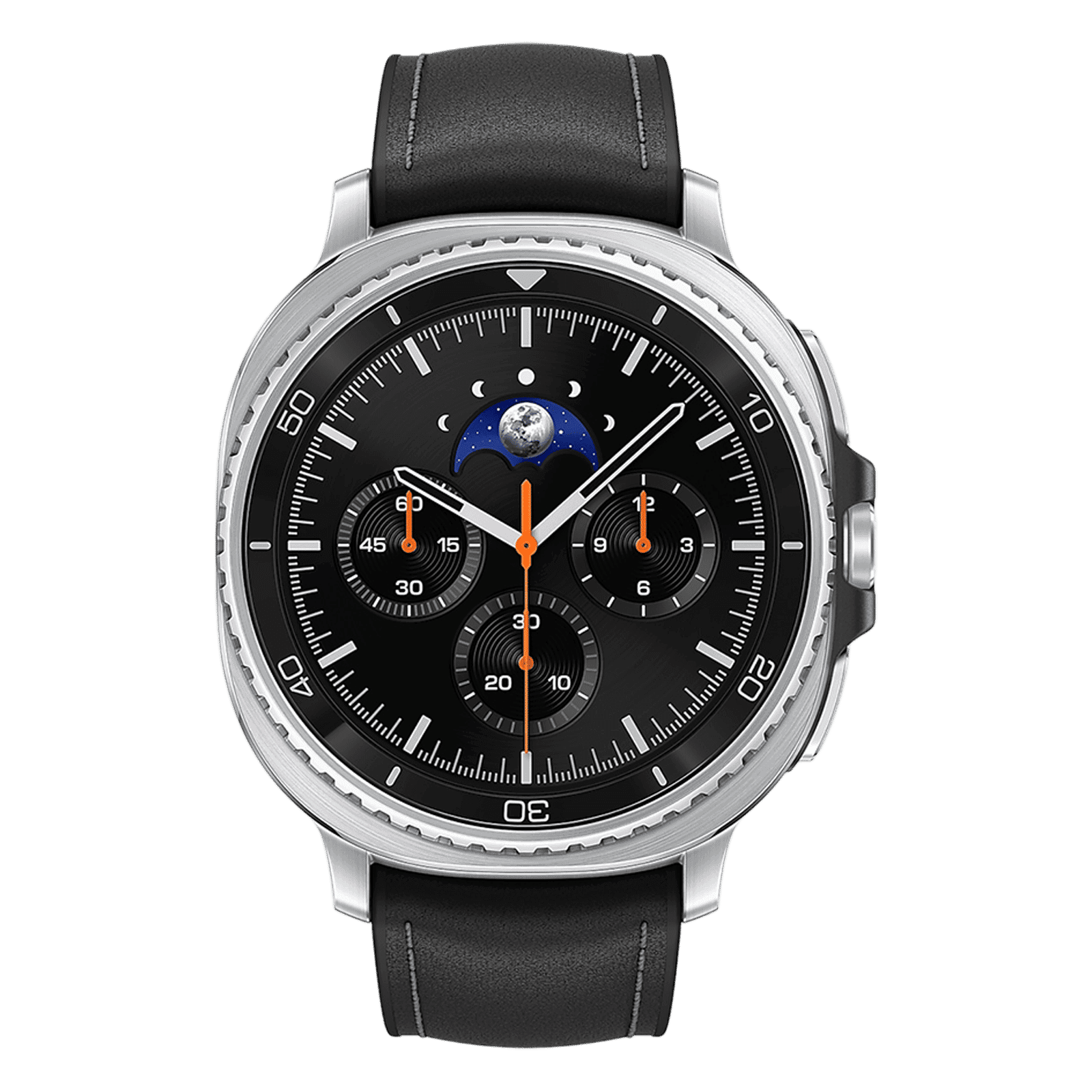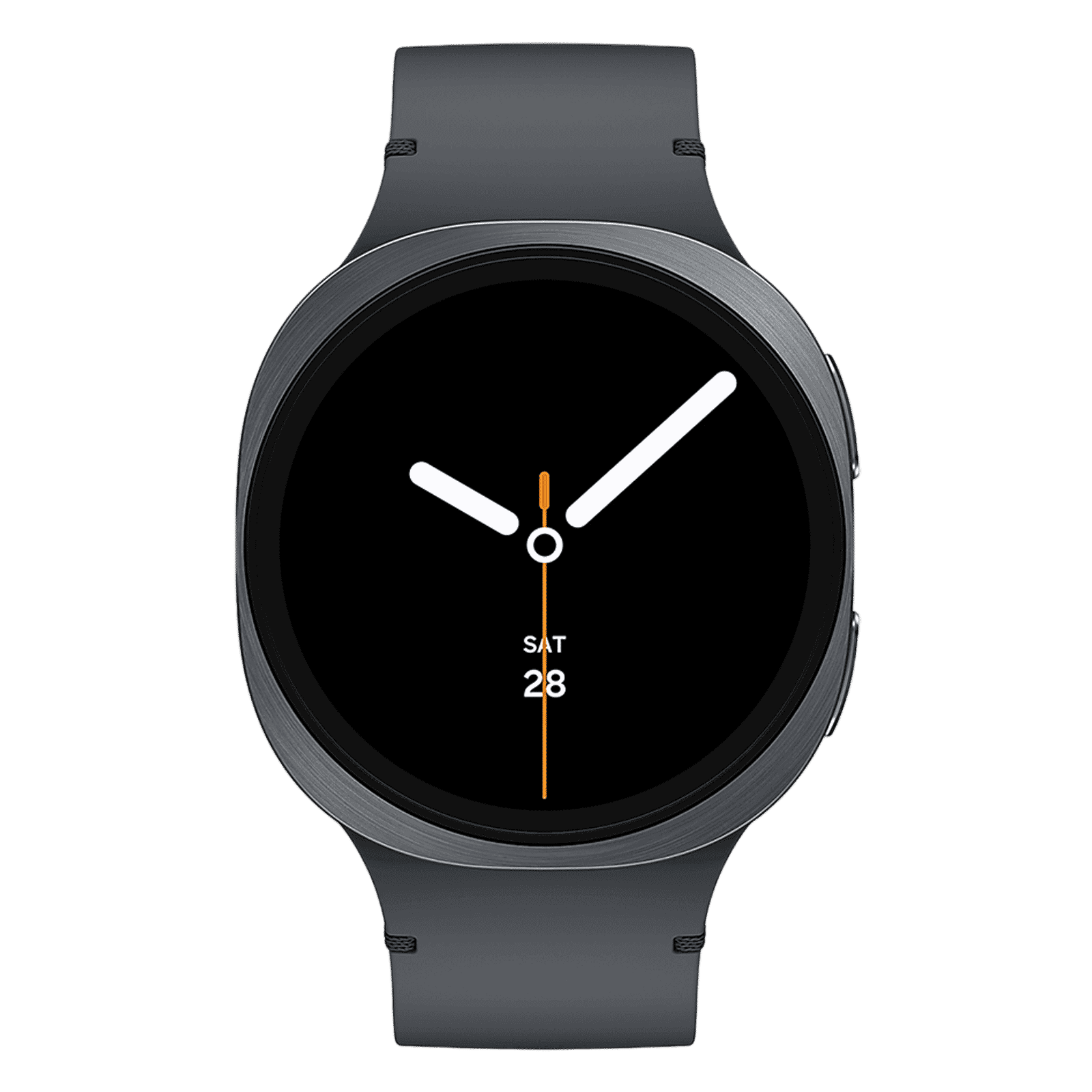%20(Presentation)%20(1600%20x%20600%20px)(540)-9a47bb97-2c7a-41b6-b728-6c4fe039592c.webp&w=3840&q=75)
Consumer Electronics
•06 min read

Buy SAMSUNG Galaxy Watch8 Classic GPS+Wi-Fi+BT+LTE Wear OS Smartwatch (4.6 cm Super AMOLED Display, 3 nm Processor, Fall Detection, Hybrid Strap) online at best prices from Croma. Check product details, reviews & more. Shop now!
Choosing the right fitness tracker can feel overwhelming, especially when weighing the impressive features of the Fitbit Charge 2 and Garmin Vivosmart HR. With the fitness tracker market booming, finding a device that not only keeps pace with your lifestyle but also enhances your journey towards better health is crucial. This comparison dives into the design, tracking capabilities, battery performance, app ecosystem, and overall value of these popular trackers, allowing you to uncover which device aligns best with your fitness goals.
The Fitbit Charge 2 boasts a sleek design with a lightweight build, making it a comfortable companion for everyday use. Its large OLED display allows for easy access to notifications and vital activity data without compromising on style. The ability to customise bands means that whether you're at work or at the gym, your tracker effortlessly adapts to your personal style. This thoughtful design element underlines the Fitbit Charge 2 features that appeal to those looking for both form and function.
In contrast, the Garmin Vivosmart HR offers a more robust design that emphasises durability and water resistance, making it well-suited for those with a more active lifestyle. Its slim profile and touchscreen display provide intuitive navigation and a user-friendly interface, keeping you connected and informed while on the move. The Garmin Vivosmart HR benefits include a sturdy build that not only stands up to the rigours of daily exercise but also remains a sleek accessory that complements your outfit.
When it comes to aesthetics, both devices have their distinct strengths. The Fitbit Charge 2 appeals to users who value a refined, modern look paired with customisable options. Meanwhile, the Garmin Vivosmart HR is crafted for those who prioritise durability without sacrificing a slim, modern design. Deciding which design fits best depends largely on your lifestyle: from the office or a night out to the intensity of your workout sessions.
Both trackers excel in heart rate monitoring, a crucial metric for gauging health and fitness. The Fitbit Charge 2 employs PurePulse technology, which provides consistently accurate heart rate data. On the other hand, the Garmin Vivosmart HR is designed with an advanced wrist heart rate monitor that maintains precision, especially during high-intensity workouts. For fitness enthusiasts looking for the best fitness tracker for heart rate, both devices deliver reliable performance, though each has its unique approach to tracking and analysis.
Beyond heart rate monitoring, these devices offer comprehensive activity tracking. The Fitbit Charge 2 incorporates features such as guided breathing sessions that not only reduce stress but also contribute to holistic health. Garmin’s tracker, however, stands out with its Move IQ feature, automatically recognising and logging various forms of exercise. These tracking capabilities underscore the naturally evolving trend seen in a comparison of fitness trackers, where both brands are constantly innovating to integrate features that suit modern lifestyles.
Advanced metrics such as VO2 Max available on the Fitbit Charge 2 add another layer of insight to your health statistics. Meanwhile, the Garmin Vivosmart HR offers tracking for stress levels, helping you manage your overall wellness more effectively. These additional metrics enable users to take a deeper dive into their fitness routines, making it easier to set and achieve health goals with clear, actionable insights.

Buy SAMSUNG Galaxy Watch8 Classic GPS+Wi-Fi+BT Wear OS Smartwatch (4.6 cm Super AMOLED Display, 3 nm Processor, Fall Detection, Hybrid Strap) online at best prices from Croma. Check product details, reviews & more. Shop now!
One of the major selling points of the Fitbit Charge 2 is its impressive battery life that can last up to five days on a single charge. This means fewer interruptions as you continue to track your activities day after day. User feedback highlights that even with regular updates and continuous monitoring, the performance of the tracker remains robust, ensuring you stay connected to your health metrics with minimal downtime.
In contrast, the Garmin Vivosmart HR is renowned for its battery endurance, delivering up to seven days of battery life. This extended performance is beneficial for individuals with busy schedules or those who might forget to charge their devices regularly. When comparing battery life, the Garmin Vivosmart HR battery life is a significant advantage, especially for users who engage in extended outdoor activities or travel frequently.
When comparing both devices, it’s evident that each device offers a battery life that caters to different usage patterns. While the Fitbit Charge 2 is perfectly suited for daily fitness tracking with minimal charging interruptions, the Garmin Vivosmart HR takes the lead for those who value longevity and extended use without frequent recharging. Ultimately, your choice might depend on how intensively you plan to use the tracker and whether you prefer a lighter, more agile device or one that promises longer battery endurance.
The Fitbit app is celebrated for its user-friendly interface, designed to provide clear insights into your daily activities, sleep patterns, and fitness achievements. With a strong social component, it encourages you to share progress and engage with a community of like-minded users. The ecosystem is built to integrate seamlessly with other health apps and devices, enhancing your overall wellness journey. This approach solidly positions the Fitbit vs Garmin fitness trackers conversation in favour of devices that are not only advanced but also incredibly accessible.
Garmin Connect offers robust analytics that appeal to users looking for detailed metrics and customisable insights. Though it may have a slightly steeper learning curve compared to the Fitbit app, its comprehensive data sets are invaluable for those who are serious about their fitness. The Garmin Connect ecosystem is tailored for users who appreciate a data-rich environment that supports a focused and analytical approach to health and fitness.
Both trackers feature effective connectivity options that enable you to stay in touch with your smartphone. Whether it’s synchronising your daily activity data or receiving timely notifications, the devices ensure that you never miss a beat. Bluetooth connectivity and smooth syncing capabilities mean that you can effortlessly integrate your fitness tracker with your other tech gadgets, offering a holistic digital wellness experience.

Buy SAMSUNG Galaxy Watch8 Wi-Fi+BT+GPS Wear OS Smartwatch (44mm Super AMOLED Display, 3nm Processor, Fall Detection, Sport Strap) online at best prices from Croma. Check product details, reviews & more. Shop now!
The Fitbit Charge 2 shines with its stylish design, accurate heart rate tracking, and valuable wellness features like guided breathing sessions. However, some users note that its lack of water resistance might limit its use in certain environments. Weighing these fitbit charge 2 pros and cons, it becomes clear that while it stands out for its design and user engagement, it may not be the best fit for those who prioritise rugged durability.
On the other hand, the Garmin Vivosmart HR offers a longer battery life accompanied by a robust, water-resistant build. These qualities make it an appealing option for more active users or those who value convenience in terms of charging frequency. Although it may not possess the refined style of the Fitbit Charge 2, its focus on durability and performance resonates strongly among serious fitness enthusiasts. This perspective is often highlighted in various garmin vivosmart hr review discussions.
In terms of overall value, both devices offer compelling propositions. The choice ultimately depends on your specific needs: if you lean towards a stylish, wellness-centred device with easy-to-use features, then the Fitbit Charge 2 is likely the better option for you. Conversely, if longer battery life and resilience are at the top of your list, then the Garmin Vivosmart HR might be the right choice. An honest fitness tracker comparison guide would conclude that each device caters to a different kind of user, making them both valuable in their own right.
Did You Know? Accuracy vs. Features: The Tradeoff
While both the Fitbit Charge 2 and Garmin Vivosmart HR are excellent fitness trackers, they cater to slightly different audiences. Fitbit excels in user-friendly features and guided wellness tools, while Garmin is a favourite for serious athletes who prioritise accuracy and durability.
It depends on your priorities. Garmin is ideal for athletes needing precise metrics, while Fitbit is better for casual users focusing on general fitness and wellness.
Garmin’s heart rate tracking is often more accurate during intense activities, but both devices perform similarly for resting heart rate monitoring.
Yes, the Fitbit Charge 2 uses PurePulse technology to deliver accurate heart rate readings for most users, though accuracy may vary during high-intensity workouts.
The Fitbit Charge 2 and Garmin Vivosmart HR both stand out as exceptional fitness trackers, each crafted to meet the distinct needs of different users. If a sophisticated design paired with wellness features is what you seek, the Fitbit Charge 2 offers a compelling mix of style and functionality. Alternatively, if durability, extended battery performance, and advanced tracking metrics are your priority, the Garmin Vivosmart HR is certainly worthy of consideration. By understanding the strengths and nuances of both devices, you are well-equipped to choose the tracker that best supports your journey towards a healthier lifestyle. Enjoy the convenience and rewards that come with smart shopping on Tata Neu, where every transaction can earn you NeuCoins to enhance your digital and offline experiences.